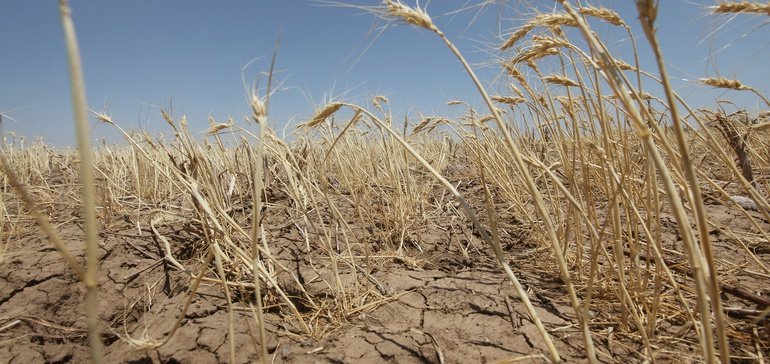Nestlé, Campbell Soup ‘highly exposed’ to climate risks, investor group warns

Dive Brief:
- Major food players including Nestlé, Campbell Soup, Nissin Foods, Ajinomoto and Kerry Group ranked among 50 large companies that are “highly exposed” to the physical effects of climate change relative to other businesses in the sectors and regions, according to the Institutional Investors Group on Climate Change (IIGCC).
- The IIGCC, which represents over 50 global investors representing $10 trillion in combined assets, published a set of expectations it wants these at-risk businesses to implement to protect their operations from the effects of climate change. This includes setting up a climate risk assessment to identify the significance of potential climate-related effects on their products, developing strategies to handle the material and financial risks, and locating adaptation solutions.
- As extreme weather events like droughts and wildfires have increased in recent years, this report shows that investors see many food companies as largely unready to handle the ingredient shortages, price hikes, and supply issues caused by climate change.
Dive Insight:
For food companies, there is no longer a question whether climate change is a financial — and existential — threat to their operations.
This year, a drought across Canada and Europe caused a poor harvest season for durum wheat, which has the potential to spur a shortage of pasta. Prices of crops impacted by dry weather conditions, such as wheat, corn and soybeans, have surged this year, which manufacturers have had to pass down to the consumer. And consumers are noticing: In a recent survey by Inmar Intelligence, over 84% of shoppers said they observed an increase in prices for groceries and household items that they regularly purchase.
These issues come at the same time as labor and freight issues that are stressing food supply chains.
In its report, the investor group says that even if global temperatures do not exceed 1.5 degrees Celsius over the next 20 years, there will be tangible effects for businesses. For example, the average length of droughts will increase by two months.
The IIGCC expects investors to engage with those companies that ignore the impacts of climate change.
“It is more important than ever that investors are able to understand the risks and associated financial impacts that companies are facing when it comes to the physical effects of global warming,” Stephanie Pfeifer, CEO of IIGCC, said in a statement. “This means that they can effectively identify sectors and individual businesses that are resilient or well-placed to adapt, and increase engagement with those that don’t have an effective risk management strategy in place.”
Nestlé — the largest food company in the world and considered “highly exposed” to climate change by IIGCC — has made moves to protect its operations from the effects of climate change. The food giant told Reuters in a statement that it will “assess physical impacts on our value chain over a longer time horizon.” In its 2020 Task Force on Climate-Related Financial Disclosures report, Nestlé said it has simulated different climate scenarios with physical impacts, including raw material shortages and facility disruptions, in order to track the potential financial impact on the company.
Nestlé has also invested in efforts to tackle the causes of climate change in its own operations. It announced earlier this month that it is investing $1.29 billion in regenerative agriculture to lessen its carbon footprint while also providing a way to conserve the soil in which it grows food. It has also invested heavily in R&D to develop higher-yielding cocoa and coffee varieties that can produce more with the same or less amounts of water.
Campbell Soup has released a set of climate provisions that it has implemented in order to lessen its carbon footprint such as lessening emissions and fighting deforestation. The company did not respond to requests for comment on the IIGCC ranking as of press time.
Other large food and beverage companies have made moves to cushion their supply chains from the effects of climate change. Nestlé, Danone, Kellogg, Mars Wrigley and others have focused on increasing biodiversity and resilience in products so that they are not reliant on the same crops. Two-thirds of the world’s crop production is made up of just nine plants, including wheat, soybeans, sugar cane, maize, rice, potatoes, palm oil fruit, sugar beet and cassava.
Source: fooddive.com

